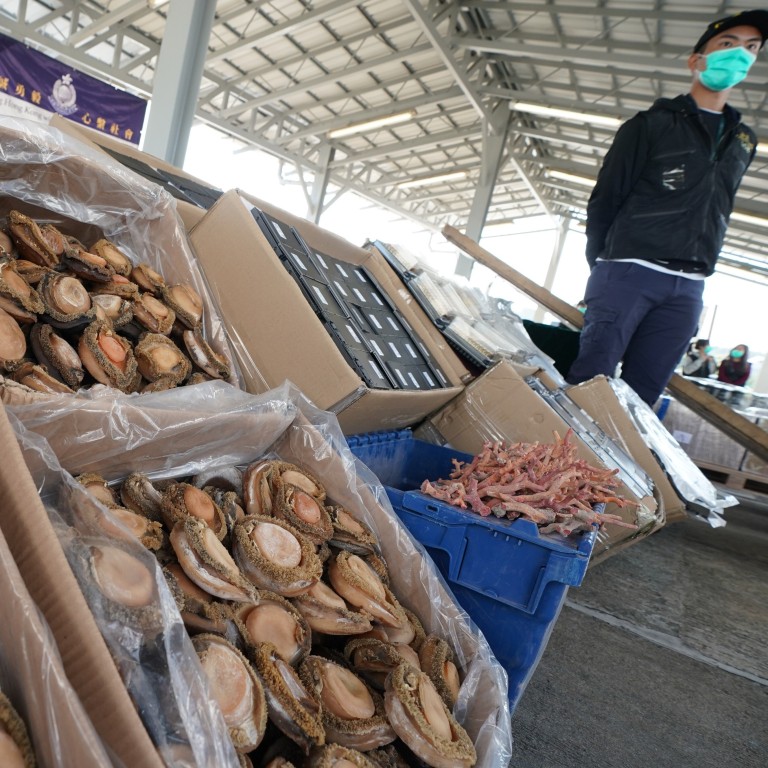
Record customs hauls, animal cruelty, a horror blaze and a billion-dollar burglary: Hong Kong 2020 crimes and tragedies
- 2019’s protests may have waned but this year was no less difficult amid a pandemic and surge in crimes
- The Post looks at cases that made headlines, from foiled bomb plots to massive drug seizures
There were 52,859 crimes reported in the first 10 months of the year, a 16.6 per cent rise from 45,334 in the same period last year, with cases of robbery, blackmail and deception recording the sharpest increase.
The Post looks at a list of crimes and tragedies this year that made headlines and gripped the city:
Anti-smuggling operation ends in tragedy
The three victims – two men and a woman – were among five officers thrown into the sea from the 12-metre craft. In the vicinity, police later seized a cargo vessel believed to have been involved in a collision with the customs boat. Law enforcers discovered more than 1,000 boxes of frozen meat in the cargo vessel, but no crew members were found on board.
Hong Kong authorities had stepped up patrols and enforcement actions after noticing a rise in cross-border smuggling activities in the city’s western waters, with criminals taking illicit meat to the coastal province of Guangdong to evade hefty mainland tariffs and stringent import restrictions.
Horrifying case of animal cruelty
A secondary schoolteacher and a merchant, who were accused of hurling the animals from the building, were arrested for cruelty when they surrendered to police separately. In September, authorities decided not to prosecute the two men. The Department of Justice said it found insufficient evidence to initiate criminal proceedings, sparking outrage among animal lovers and activists.
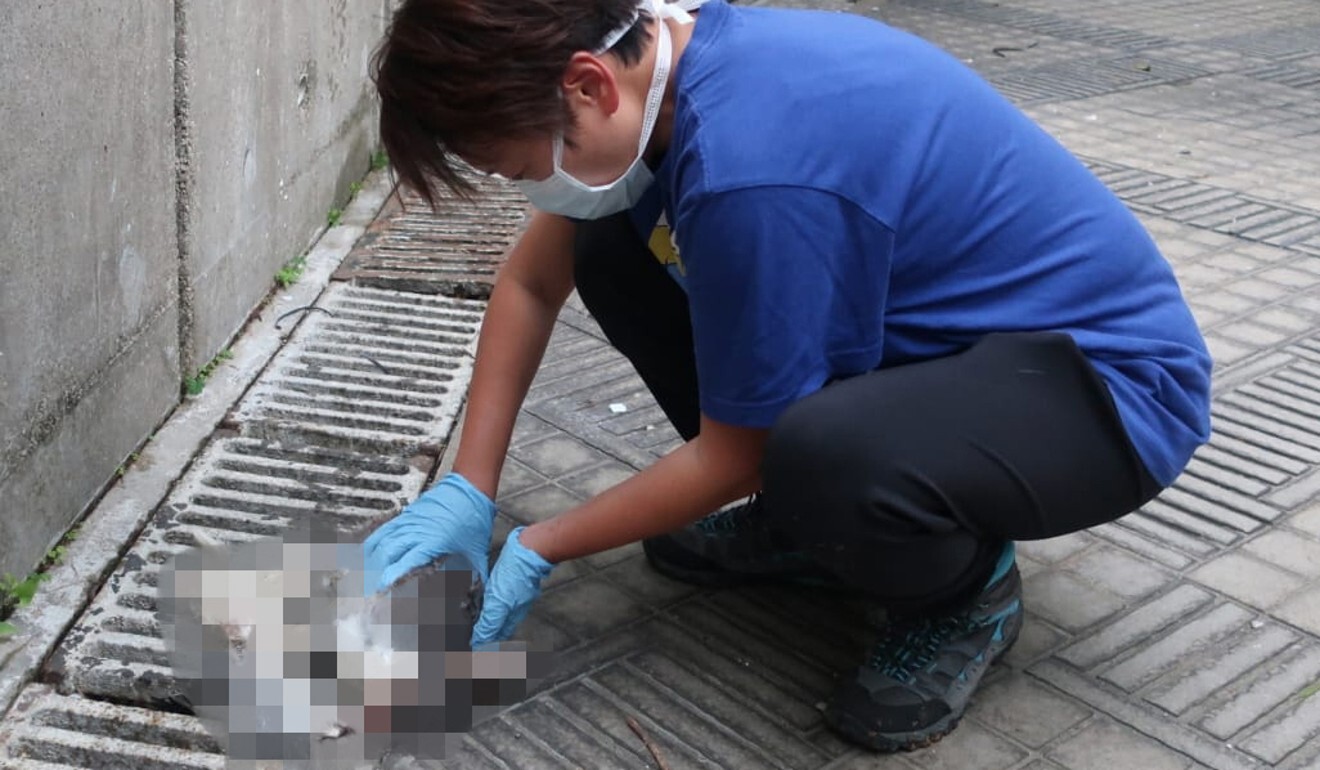
Mask scams become rising trend
This year, Hong Kong was hit by a new type of fraud – surgical mask scams. Fraudsters capitalised on the desperation among residents to stock up on protective gear, when the coronavirus hit earlier in the year.
In an unprecedented operation to track down the stolen money, Hong Kong police recovered HK$15 million in cooperation with overseas law enforcement agencies. It was just one of 2,292 separate mask scams involving financial losses totalling HK$70 million in the first half of the year.
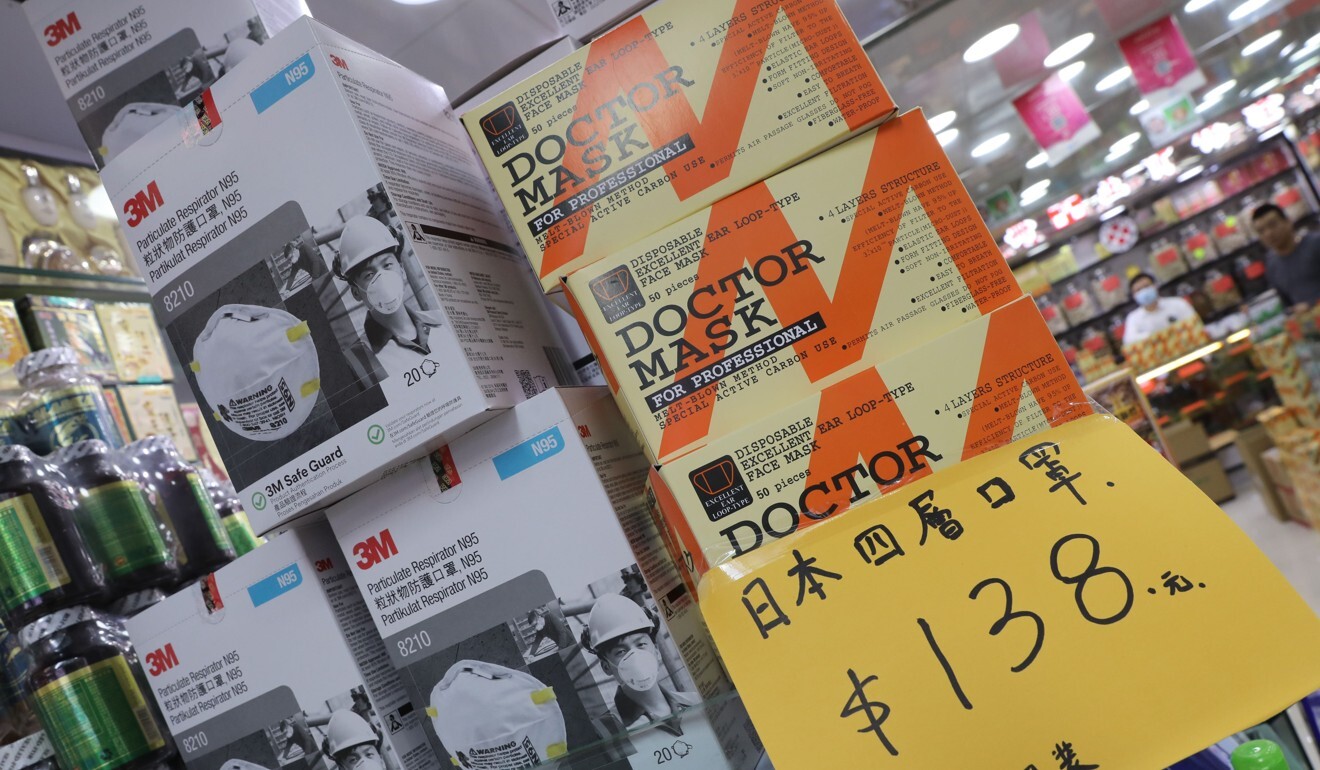
Bomb plots foiled
The force believed the suspects were also linked to three bomb plots in January and February, when an explosive device went off at Caritas Medical Centre in Cheung Sha Wan, a day before another one was found at Shenzhen Bay control point. At Lo Wu railway station, one of two devices found on a train caught fire and spurted white smoke.
Hong Kong had been gripped by months of social unrest from June in 2019, sparked by the now-withdrawn bill that would have allowed the transfer of fugitives to jurisdictions with which the city had no such arrangement, including mainland China.
Biggest crystal meth haul
The four were among 18 officers arrested for various offences in three weeks, prompting the force to set up an Integrity Audit Office to supervise staff conduct.
National security law crackdown
More than 200 officers raided the headquarters of Next Digital – which owns Apple Daily newspaper – in Tseung Kwan O, where boxes of evidence were seized over many hours.
During the police operation, media mogul Jimmy Lai Chee-ying, founder of Next Digital, was arrested over alleged collusion with foreign forces to endanger national security and conspiracy to defraud.
Lai’s son Ian Lai Yiu-yan as well as Next Digital chief operating officer and chief financial officer Royston Chow Tat-kuen were also arrested over collusion with foreign forces. Police detained former student activist Agnes Chow Ting and two others for the same alleged crime on the same day.
Animal trafficking deaths
The grim discovery came just several days after four cages carrying 12 live dogs of various breeds, including Labradors, Pomeranians and poodles, were among HK$37 million worth of goods seized on a speedboat in one of the biggest smuggling cases of its kind. The haul included abalone, red wine and electronic products.
Police said in September that amid the coronavirus pandemic, many owners – believed to be mainland Chinese working or studying abroad – had paid 40,000 yuan (HK$47,370) each to an agency to have their pets sent back to them after they returned home.
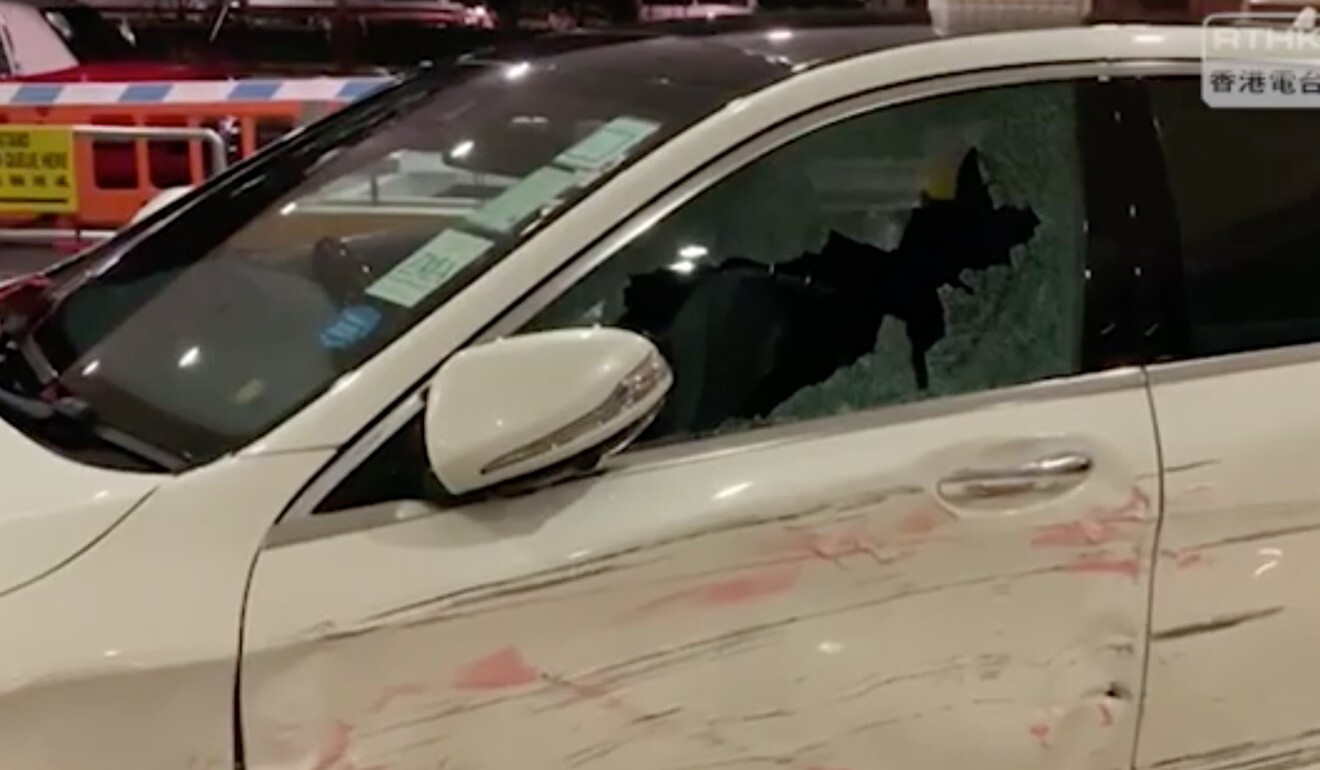
Triads come under the spotlight
The shooting happened soon after midnight on September 8 as the bike pulled up next to the 45-year-old man’s Mercedes-Benz when it stopped at a traffic light. The hitman sped off on his motorbike after firing one shot.
The victim – believed to be a faction leader of the Wo Shing Wo triad – was shot in the chest, but he managed to drive about 1km to Queen Elizabeth Hospital where a bullet was removed during emergency surgery.
Police believed the shooting was related to a money dispute over a cross-border frozen meat smuggling business between two Wo Shing Wo gangs. In October, officers arrested the former top leader of a triad in connection with the attack. But the gunman is still on the run.

Billion-dollar art burglary
Seven pieces of calligraphy purportedly drawn by former Chinese leader Mao Zedong, 24,327 stamps and 10 copper coins were stolen from the home of Fu Chunxiao, a well-known collector of antique stamps and revolutionary art. Police initially said the haul was estimated to be worth HK$4 billion. In October, police said the owner claimed that figure was HK$5 billion.
The damaged artwork was recovered along with two copper coins in an operation in October, with the buyer among three people arrested in connection with the case.
Biggest money-laundering bust
The family – the parents, two sons, and a daughter – was accused of funnelling the cash through their accounts, which they had opened at nine different banks to deal with the HK$3 billion in suspected crime proceeds since 2018. More than 6,000 suspicious financial transactions were involved, with the biggest single transaction being HK$22 million.
Law enforcers believed the family helped other syndicates to launder funds in return for monetary rewards. The family’s HK$30 million in assets have been frozen.
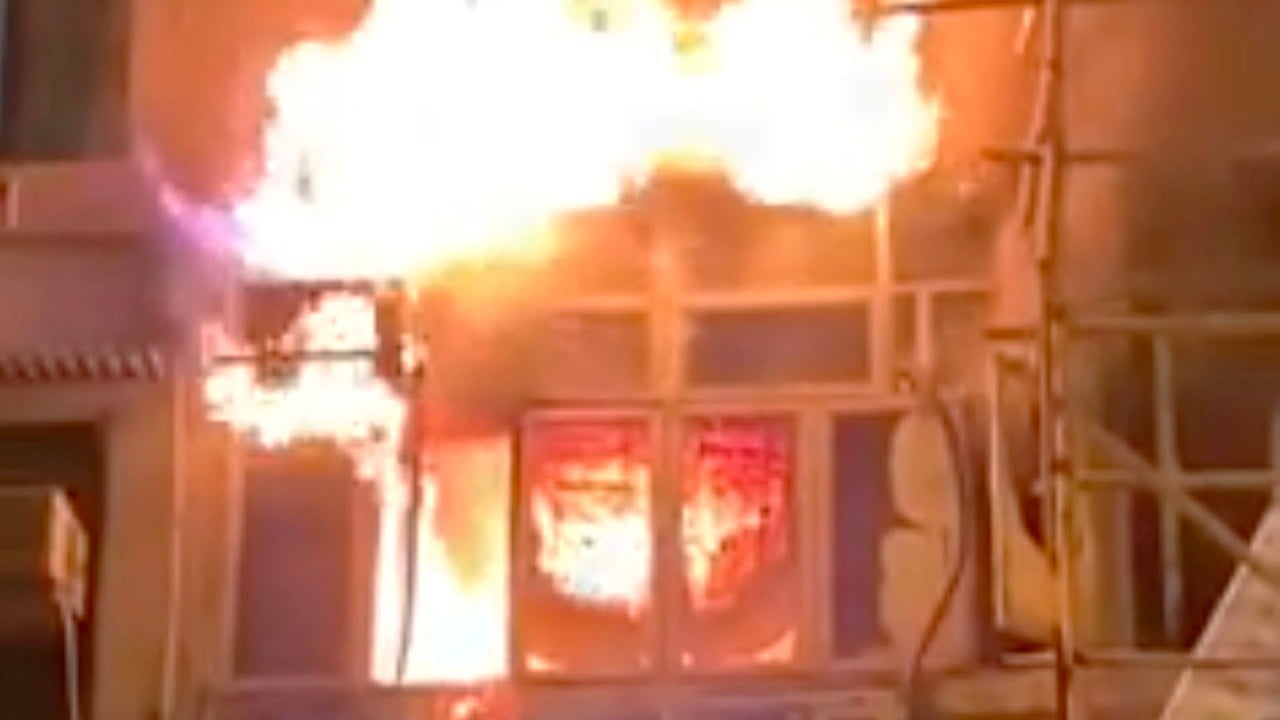
01:17
Hong Kong tenement fire kills at least seven people, injures several more
Worst blaze in almost a decade
Those at the Nepalese kitchen-style restaurant were celebrating a birthday and Diwali, the Hindu festival of lights, when the tragedy struck on November 15.
Investigators believed lit candles, placed on the venue’s floor near the main entrance, were thought to have set the wall’s soundproofing materials on fire, blocking the exit.
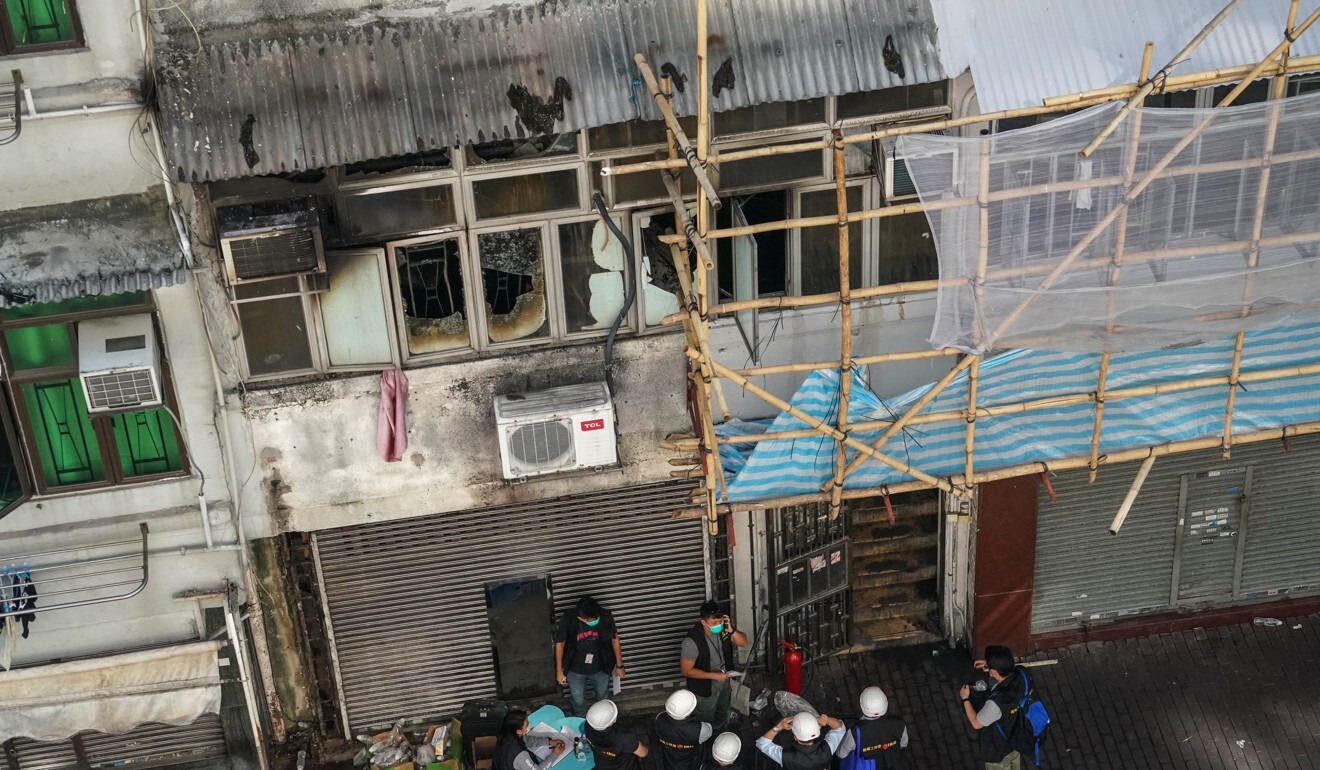
Influencer targeted after show of wealth
Police reminded local residents not to flaunt their wealth and warned such behaviour could draw the attention of criminals.

The woman, her six-month-old son and a domestic helper were tied up when three men broke into her Cheung Sha Wan home in a daring daylight hold-up. The trio fled with valuables. On the day of the raid, police said the stolen property was estimated to be worth HK$3.6 million.
When announcing the arrest of nine suspects on December 18, Inspector Chu Ka-yee said the victim claimed the valuables were worth more than HK$10 million.
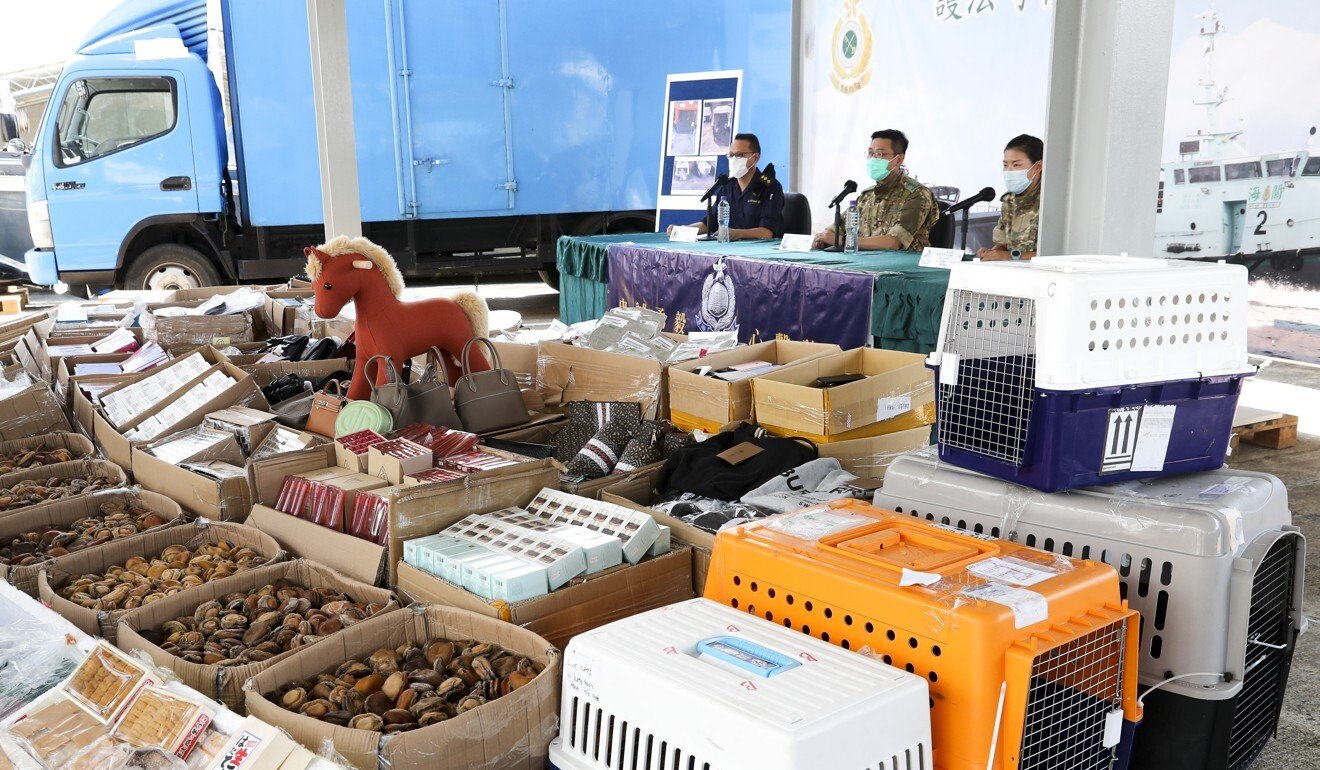
Surge in seaborne seizures
Electronic goods, cosmetic products and delicacies such as abalone and bird’s nests are among items always in high demand in mainland China, especially during the festive season. Illegal cross-border smuggling operations have flourished, designed to avoid hefty tariffs and stringent import restrictions imposed by mainland authorities. Maritime smugglers could pocket between HK$300,000 and HK$500,000 for each illegal shipment, using powerful speedboats to transport the contraband across the border.
Up to December 4 this year, customs had confiscated HK$540 million worth of contraband items in Hong Kong waters. The value of the goods was 230 per cent more than the HK$160 million in seizures made in the whole of 2019.
Which stories mattered most to you in 2020? Find out with our Year In Review 2020 retrospective

